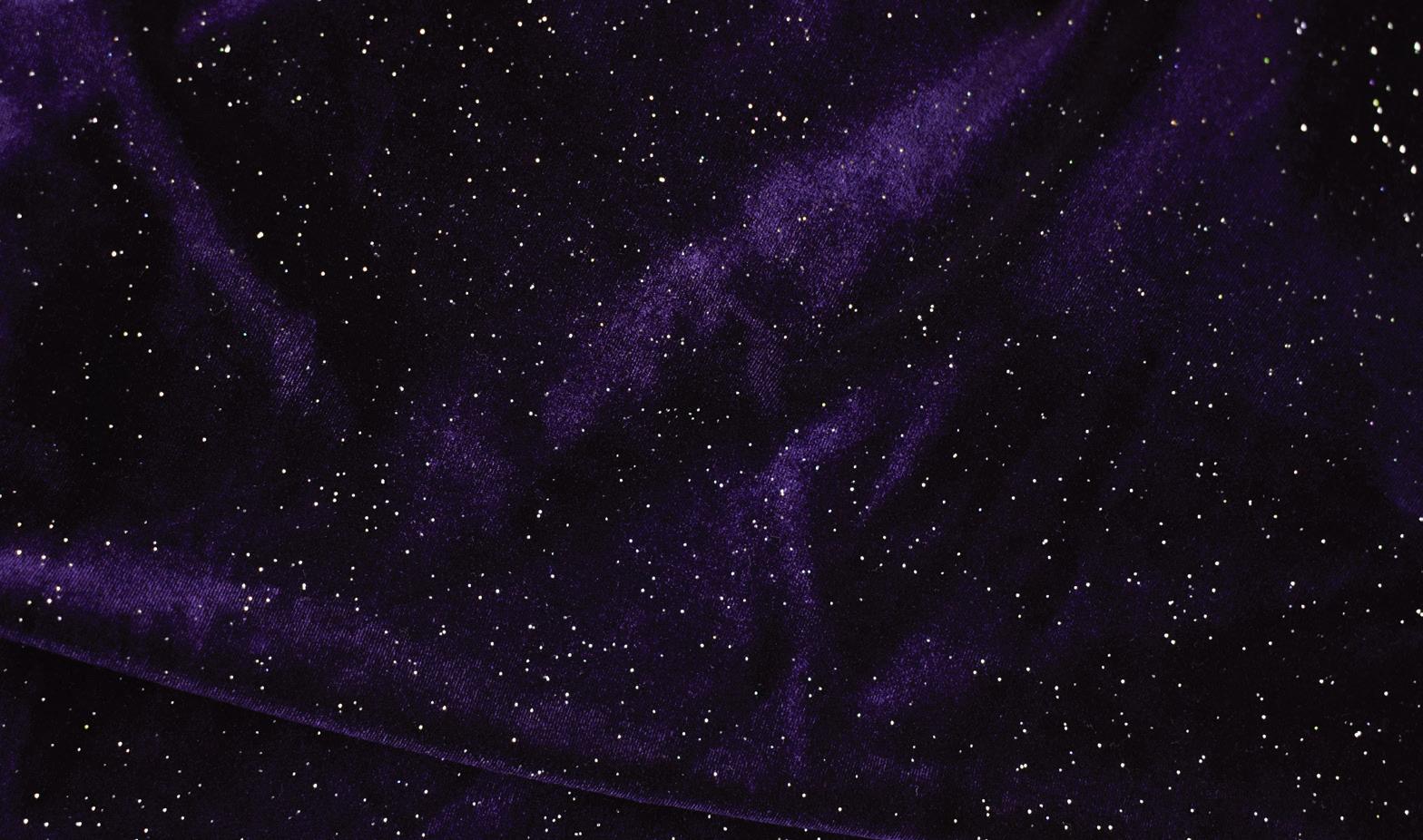
9 minute read
Calev’s Voice Rabbi Aaron Goldscheider
GOLDSCHEIDER
Calev’s Voice
Advertisement
One cannot help but be captivated by the personality of Calev. Twelve leaders are assigned to explore the land of Canaan. Only Calev and Yehoshua return with positive reports. Strikingly, it is Calev who emerges as the heroic figure in the drama. It is he who tries to rally the people with the words “נעלה עלה”, “We can surely go up!”
Calev is singled out for tremendous reward: “I will bring him into the Land”. Hashem calls him “avdi Calev”, “My servant Calev” (Bemidbar 14:24). Very few people are ever given the appellation Eved Hashem, servant of God. When the Jewish people conquer the land of Canaan, Calev is immediately given the city of Chevron as a gift (Yehoshua 14:14).
The commentary of the Ohr HaChaim, Rabbi Chaim ben Atar (1693-1743) offers a fascinating insight into Calev’s character. The pasuk states: “My servant Calev had another spirit (אחרת רוח (within him…” The standard understanding of this phrase is that Calev’s ‘different spirit’ meant that he was above and beyond the other spies, he was endowed with elevated sanctity. Ohr Hachaim disagrees. He claims that the term Acheret is not used in the positive sense. Simply, it alludes to yetzer hara. It means that Calev had temptations to join the other spies. He would have to battle, he would have to struggle to maintain his faith in the promise. He had to wrestle with himself and the challenging scenario that he faced. The pasuk continues to say, ‘He followed me fully’; despite the struggle he managed to stand against the pressure of the other meraglim and even his own self doubts.
This image of Calev is further reinforced by the Talmud which famously states that Calev left the other spies to go pray in Chevron at the burial site of our forefathers and mothers (Sota 34b). He intentionally finds this location in order to gain strength and help overcome the great challenge of returning with a positive report about Israel. It was there that Calev went to pray; just the right setting to fortify the inner strength he would need and identify with the right values.
Parenthetically, it has been suggested that this unique trait of Calev is hinted to in his name which translates as “whole heart” (לב כל .(The Hebrew word for dog, kelev, has a similar meaning; it is related to the notion of loyalty or fidelity (the name traditionally given to a dog is ‘Fido’, which comes from the Latin word fidelus). (‘Frameworks’ Vol. 4, Rabbi Matis Weinberg, p.136)
The moment of truth arrives. The spies return from their mission and stand before the nation. As is well known, they speak badly of the Land. Calev responds swiftly: “And Calev stilled the people toward Moshe and said, We should go up at once and possess it; for we are well able to overcome it” (Bemidbar 13:30).
The renowned Rabbi Meir Simcha of Dvinsk (1843-1926), in his classic commentary, Meshech Chochmah is intrigued by the seemingly superfluous expression ‘toward Moshe’. What do these two words imply? Apparently, they allude to a larger narrative that is unfolding in the background. He suggests that the reason for the panic and terror that seized the people at that moment was that they were concerned that Moshe would not lead them into the land. A prophecy had spread throughout the camp, verbalized by Eldad and Medad, who reported that Moshe would die and Yehoshua would take over the mantle of leadership (Rashi Bemidbar 11:28). Full of misgivings they wondered “How will we overcome these mighty giants, conquer these fortified cities without Moshe at the helm?”
Calev explained to them that they were wrong in attributing the miracles to Moshe. On the contrary, the people are worthy of miracles, and Moshe’s true greatness and holiness flows from the nation itself. This is the meaning of the pasuk, “Calev quieted the people regarding Moshe.”
He called attention to their error of unjustifiably crediting Moshe for all the miracles, by saying, “We must go forth at
FOR SALE
Luxurious Penthouse on Prestigous Caspi St 5 bedrooms, 200 sqm built to the highest standards, large balcony overlooking magnificent views! Parking, elevator. Immediate occupancy!
Mini Penthouse, Mekor Chaim St 4 bedrooms, 2.5 bath, 120 SQM, architecturally designed, Spacious and well lit, Sukkah balcony, Shabbat elevator Central A/C + under-floor heating, 2 underground parking spots, storage unit
Great Location! Menashe St, Baka Large and spacious 2-bdrm 2-bath apartment, exit to garden, newly renovated, central A/C, motivated sellers!!! For Rent
Luxury Rental in the City Center Luxurious apartment in Boutique Haneviim: 3 bedrooms, 2.5 baths, fully renovated & furnished, balcony with stunning views! Doorman, Shabbat elevator, parking & storage
Yitzchak Kowalsky 054-766-0338 Yitzchak@yykrealestate.com www.yykrealestate.com
once and occupy the land. We can do it,” even without Moshe.
והוא שאמר ויהס כלב את העם במה שמיחסים הכל אל משה, זה לא תדברו ולא יעלה על לבבכם, כי רק במשה תלוי הנצחון והנסים, לא כן, רק עלה נעלה כו‘. וזה שאמר יהושע ג‘ ויאמר כו‘ בזאת תדעון כי א‘ חי בקרבכם, פירוש, שלא תדמו, כי משה היה בקרבכם והוא עשה את כל הגדולות )משך חכמה במדבר יג:ל(
Let us cite a dramatically different idea regarding Calev’s terse response. It was offered by Rabbi Kalonymus Kalman Shapira zt”l (1889-1943), the heroic Rebbe of the Warsaw Ghetto. He shared the following with his chassidim in the shadows of the Holocaust on Shabbat Parshat Shelach, June 22, 1940.
The Rebbe of Piaseczna, belovedly known as the Aish Kodesh, was no stranger to fear. In the dark and foreboding days of the Shoah he was determined to offer guidance and support during those dire days. “Look at the words of Calev ben Yefunah, the spy who stood before the nation and said Aloh na’aleh...we will ascend, we will prevail. Let’s understand,” said the holy Rebbe, “The spies’ report was based on logic and common sense: the Land’s inhabitants were tough, surrounded by firm, strong walls. Why did Calev not endeavor to offset their arguments? Why did he simply say “Let’s go? How did he expect to shift the tide and convince the people that they could and should enter the land?”
The spies, as was their way, also perverted the information. Apparently, they even lied when they said that they also saw the offsprings of giants (v. 28) even though they hadn’t seen the giants, only Calev did when he entered Chevron. Calev could have proven them wrong. He could have argued point by point. Yet, he chose not to present a skillful defense. Why?
The test of Emunah is not when the road to salvation is clear. On the contrary, says the Aish Kodesh, when one’s chances of salvation is defied by logic, a person must say, “Yes. It’s all true. They are tough inhabitants surrounded by what appear to be insurmountable walls. Nevertheless, I believe that Hashem is beyond nature, He will help. He will preserve us.”
The Chassidic leaders throughout their history stressed the importance of Emunah. However, the Rebbe of the Warsaw Ghetto’s message of faith resonates with even greater force knowing that it was lovingly related to his flock in the crucible of unspeakable suffering and fear. He powerfully taught that one must see not only with one’s eyes; one must see with one’s heart and soul.
A final thought about Calev’s utterance. One may ask: “Did Calev’s words make any difference?” After all, the spies immediately quieted him. Not missing a beat the spies exclaimed that it is simply not feasible to enter the land. The people

heard their words. For all practical purposes his courageous stand bore no fruit at all.
In truth, for a moment Calev’s words were heard. When the meraglim noted the change of mood of the people, they were forced to reiterate their negative message.
The eminent Halachic authority, Rabbi Moshe Feinstein zt”l (1895-1986) said that although Calev’s success was of short duration, it was still considered a success. The great posek compared it to the halachic view regarding preserving a person’s physical life being of paramount importance. One must desecrate the Shabbat to save a life even if it is to prolong a life for just a brief moment. So too in the spiritual realm, any achievement, be it even for a fleeting moment, carries great weight in heaven. (Derash Moshe, Shelach, Bemidbar 13:30)
A contemporary of Rav Moshe, Rabbi Aharon Kotler zt”l (1892-1962) the great Lakewood Rosh HaYeshiva expressed this same notion when he said, “A person’s innermost intent, for good or bad, has ramifications for generations to come.” (Mishnas Rabbi Aharon, Vol. 1).
No matter the outcome, one never knows what a single positive word or constructive act can accomplish, any expression of faith has inherent value and eternal reverberations. When the holy Rebbe of the Warsaw Ghetto buried his written words in a canister under the ground of the ghetto he did not know what would be. Only blackness covered the earth. Amazingly, perhaps even miraculously, they were found after the war and published in Israel. His holy reflections and divrei Torah continue to guide us, uplift, and ennoble our spirits.
On that fateful day in the wilderness when the people cried out in fear, Calev’s voice was heard and touched their hearts, even if it was only for a moment. His wholehearted and fervent words touched the souls of all who heard his voice.
His words still ring loudly, generations laters; offering us courage and boundless optimism. ‘Aloh naaleh, ‘We can certainly ascend!’
SHIUR SPONSORS
Rabbi Manning’s and Rabbi Kimche’s Shiurim Wednesday, June 10th, are dedicated in memory of Bobby Hill z”l of London, Binyamin ben Beryl Leib z”l. He was an excellent educator and will be missed by the many people who he taught and inspired.
Rebbetzin Pearl Borow’s Shiur June 15th, is sponsored by Ester Katz Silvers in memory of her mother, Bracha bat Aryeh Leib a”h
Rebbetzin Shira Smiles Shiur Tuesday, June 16th, is sponsored by Handelle Waldman in loving memory of her parents, Freda and Wolf Buchsbaum z”l
Rebbetzin Pearl Borow’s Shiur Monday, June 15th, is sponsored by Chana Karp in loving memory of her mother Shaindle bat Avraham Matityahu a”h שיינדל בת אברהם מתתיהו ע“ה is yahrzeit כד סיון
למען יאריכון ימיהם



Loneliness and anxiety are factors contributing to the reduced cognitive and physical decline of our loved ones. The professionals at Brain Care are here to help you now and always.
Time to get back on track
Counseling and Support Groups – in person or on zoom
BRAIN CARE AT TOVEI HAIR
Our day center has reopened Ruti: 054-666-3170

BRAIN CARE AT HOME
Our therapists will bring services to the safety and comfort of your home Yael: 054-666-1374
BRAIN C RE
Cognitive Therapy Center for the Elderly
Music therapy
Exercise
Snoezelen
Shiurim
Delicious lunch
Kosher l’mehadrin









